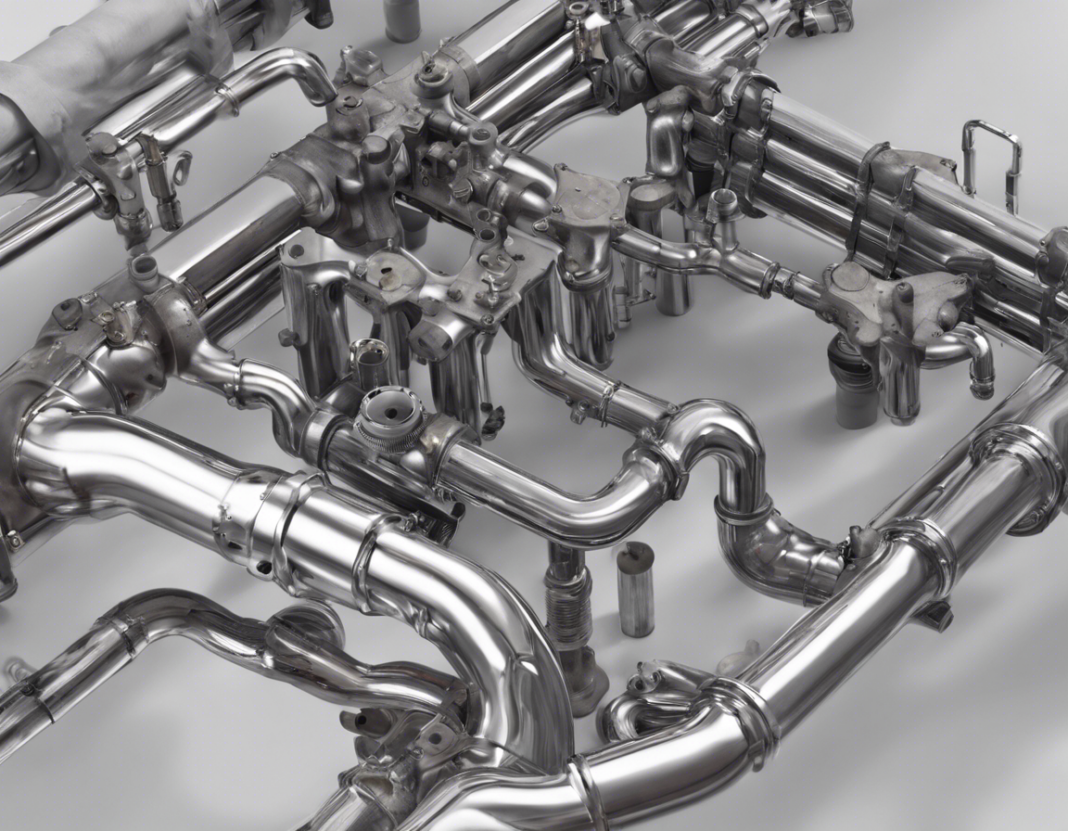A manifold leak can be a frustrating and costly issue for vehicle owners. The exhaust manifold plays a crucial role in the overall function of the exhaust system, so when a leak occurs, it can lead to various issues such as decreased performance, increased emissions, and a loud rumbling noise. In this blog post, we will discuss the causes of manifold leaks and provide solutions to help you address this common problem.
Causes of Manifold Leaks
1. Age and Wear: Over time, the constant exposure to high temperatures and corrosive exhaust gases can cause the manifold to degrade and develop cracks or holes. This is especially common in older vehicles or those with high mileage.
2. Improper Installation: If the manifold was not installed correctly or if the bolts were not torqued to the manufacturer’s specifications, it can lead to leaks over time as the seals deteriorate.
3. Engine Misfires: A misfiring engine can cause a buildup of unburned fuel in the exhaust system, leading to increased temperatures that can damage the manifold.
4. Impact Damage: Driving over potholes, speed bumps, or other obstacles can sometimes cause physical damage to the manifold, resulting in leaks.
5. Corrosion: Exposure to moisture, salt, and other corrosive elements can cause the manifold to rust and deteriorate, eventually leading to leaks.
Solutions for Manifold Leaks
1. Visual Inspection: Start by visually inspecting the manifold for any obvious signs of damage, such as cracks, holes, or loose bolts. This can help you identify the source of the leak before proceeding with repairs.
2. Tighten Bolts: If the leak is minor and caused by loose bolts, simply tightening them to the manufacturer’s specifications may solve the issue. Be careful not to overtighten, as this can cause damage to the manifold.
3. Sealant: In some cases, applying a high-temperature exhaust sealant to the leaking area can provide a temporary fix until a more permanent solution can be implemented. However, this is not a long-term solution and may not be effective for larger leaks.
4. Welding: For more significant cracks or holes, welding the manifold may be necessary to repair the damage. This should be done by a professional mechanic with experience in exhaust system repairs.
5. Replacement: If the manifold is severely damaged or the leaks are widespread, replacement may be the best option. Consider using a high-quality aftermarket manifold or OEM part for a lasting repair.
6. Preventative Maintenance: To avoid future manifold leaks, regular maintenance of your vehicle is essential. This includes checking for engine misfires, monitoring exhaust system performance, and addressing any issues promptly.
Frequently Asked Questions (FAQs)
1. How can I tell if I have a manifold leak?
– Common signs include a loud ticking or rumbling noise, decreased engine performance, increased emissions, and the smell of exhaust fumes inside the car.
2. Can I drive with a manifold leak?
– It is not recommended to drive with a manifold leak, as it can lead to further damage to the exhaust system and decrease the overall performance of your vehicle.
3. How much does it cost to repair a manifold leak?
– The cost of repairing a manifold leak can vary depending on the extent of the damage, the type of repair needed, and the make and model of your vehicle. It is best to consult with a mechanic for an accurate estimate.
4. Can I repair a manifold leak myself?
– While minor leaks may be temporarily patched with sealant, more significant repairs such as welding or replacement should be done by a professional mechanic to ensure the safety and integrity of the exhaust system.
5. How long does it take to repair a manifold leak?
– The repair time for a manifold leak can vary depending on the extent of the damage and the availability of parts. In some cases, it can be done in a few hours, while more complex repairs may take longer.
6. Will a manifold leak affect my fuel efficiency?
– Yes, a manifold leak can affect fuel efficiency as it can disrupt the proper flow of exhaust gases and lead to a decrease in engine performance.
7. Can I prevent manifold leaks?
– While some causes of manifold leaks are unavoidable, regular maintenance, prompt repairs of engine issues, and avoiding rough driving conditions can help prevent leaks from occurring.
8. How often should I have my exhaust system checked for leaks?
– It is recommended to have your exhaust system inspected during regular service intervals or if you notice any signs of a leak, such as noise or decreased performance.
9. Are manifold leaks covered by warranty?
– Warranty coverage for manifold leaks depends on the terms of your vehicle’s warranty and the cause of the leak. If the leak is due to a manufacturer defect, it may be covered under warranty.
10. Can a manifold leak cause damage to other parts of the vehicle?
– Yes, a manifold leak can cause damage to other components of the exhaust system, such as the catalytic converter, oxygen sensors, and muffler, if left unaddressed. It is essential to repair leaks promptly to prevent further damage.
